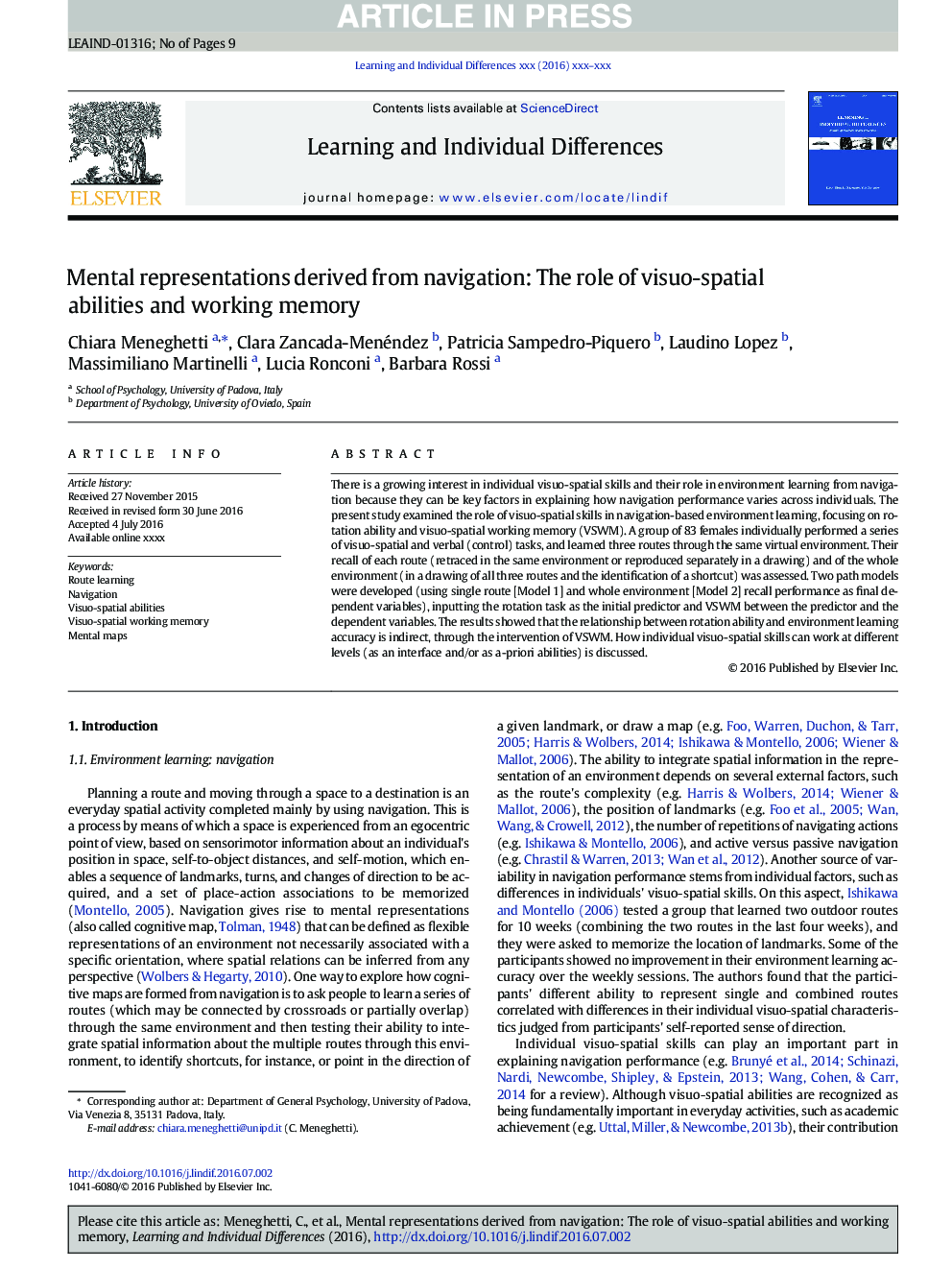| Article ID | Journal | Published Year | Pages | File Type |
|---|---|---|---|---|
| 6844793 | Learning and Individual Differences | 2016 | 9 Pages |
Abstract
There is a growing interest in individual visuo-spatial skills and their role in environment learning from navigation because they can be key factors in explaining how navigation performance varies across individuals. The present study examined the role of visuo-spatial skills in navigation-based environment learning, focusing on rotation ability and visuo-spatial working memory (VSWM). A group of 83 females individually performed a series of visuo-spatial and verbal (control) tasks, and learned three routes through the same virtual environment. Their recall of each route (retraced in the same environment or reproduced separately in a drawing) and of the whole environment (in a drawing of all three routes and the identification of a shortcut) was assessed. Two path models were developed (using single route [Model 1] and whole environment [Model 2] recall performance as final dependent variables), inputting the rotation task as the initial predictor and VSWM between the predictor and the dependent variables. The results showed that the relationship between rotation ability and environment learning accuracy is indirect, through the intervention of VSWM. How individual visuo-spatial skills can work at different levels (as an interface and/or as a-priori abilities) is discussed.
Related Topics
Social Sciences and Humanities
Psychology
Developmental and Educational Psychology
Authors
Chiara Meneghetti, Clara Zancada-Menéndez, Patricia Sampedro-Piquero, Laudino Lopez, Massimiliano Martinelli, Lucia Ronconi, Barbara Rossi,
